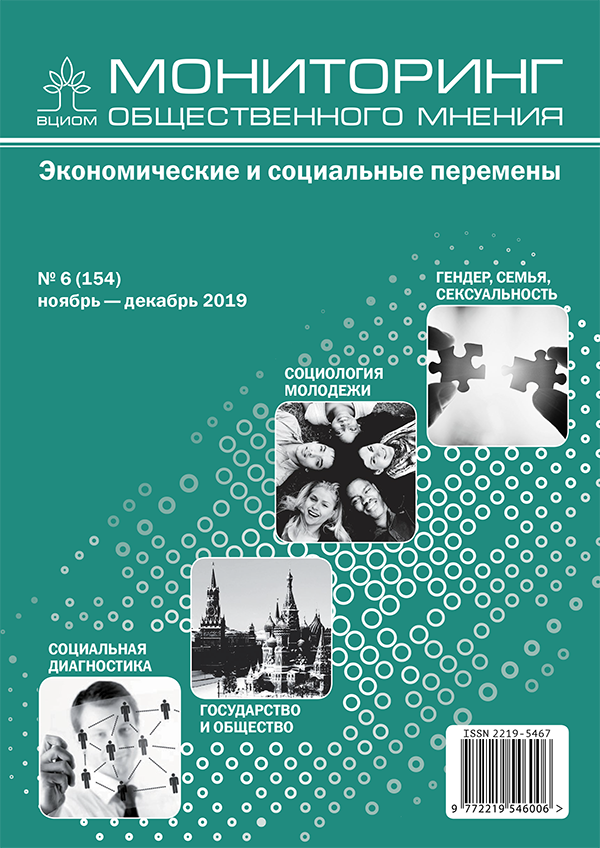Happy helpers? The impact of social activity on the levels of happiness among people aged 50 and over in the European countries
DOI:
https://doi.org/10.14515/monitoring.2019.6.12Keywords:
older generation, elderly persons, subjective well-being, happiness, social activity, social interactions, volunteeringAbstract
In the context of aging one of key purposes of social policies in different countries is to improve subjective well-being of older generation as an important characteristic of quality of life. Social ties and social activities are essential to subjective well-being in the old age. The article investigates the influence of formal and non-formal social activities on the levels of happiness among people aged 50 and over in the European countries and Russia. Analysis is based on the data of the sixth wave of the European Social Survey (ESS, 2012). Multilevel models were used to study country-specific variations. Findings show that both components of social activity have positive impacts on the levels of happiness, however non-formal social activity (interactions with friends and relatives) plays a greater role than formal activities (volunteering). For the most part, the confidence intervals of cross-country residuals do not cross the zero line; this points to substantial differences in the country-specific levels of happiness and proves the feasibility of methods used in the study.
Acknowledgments. The study was part of the HSE Basic Research Program in 2019.






